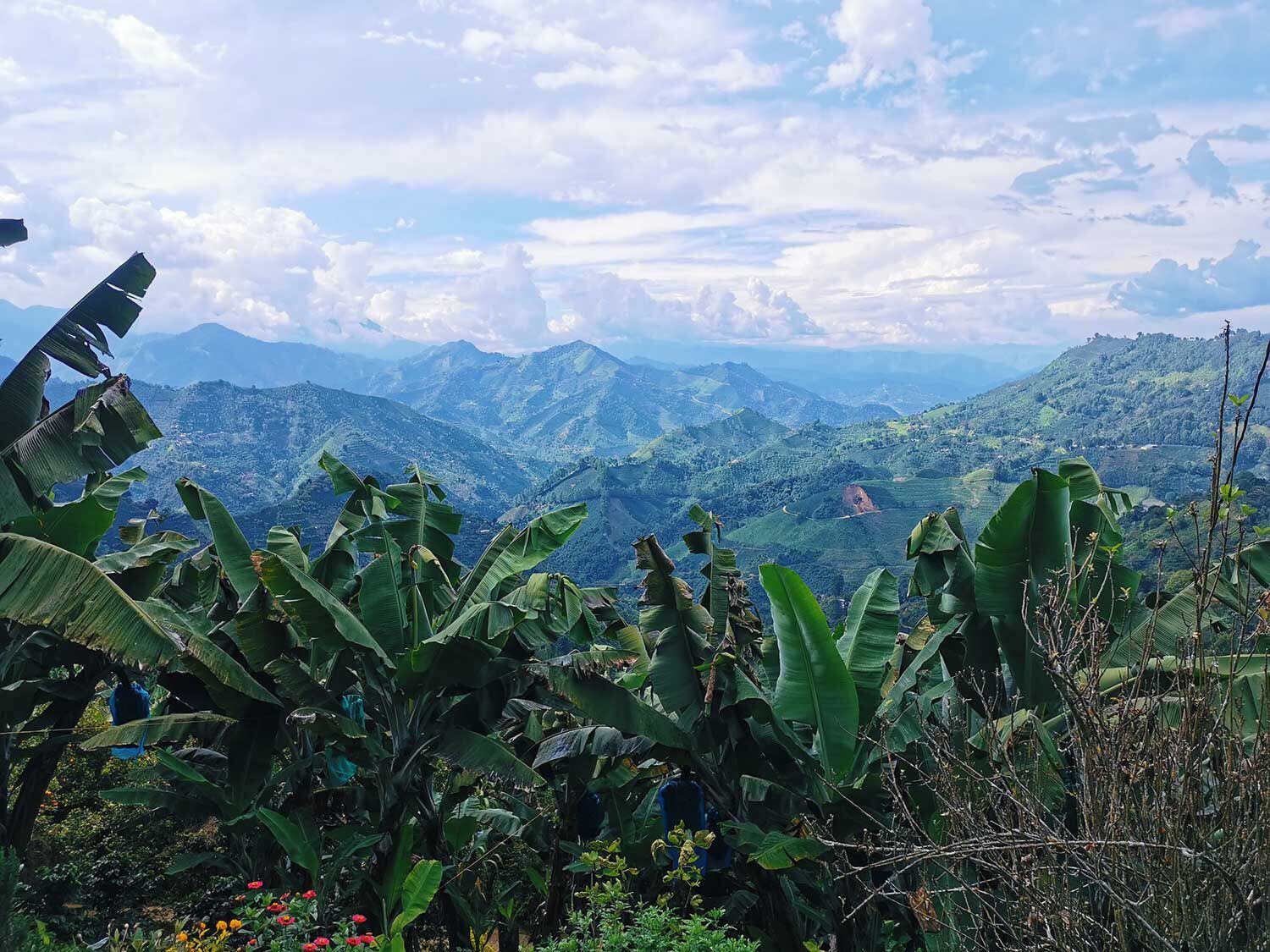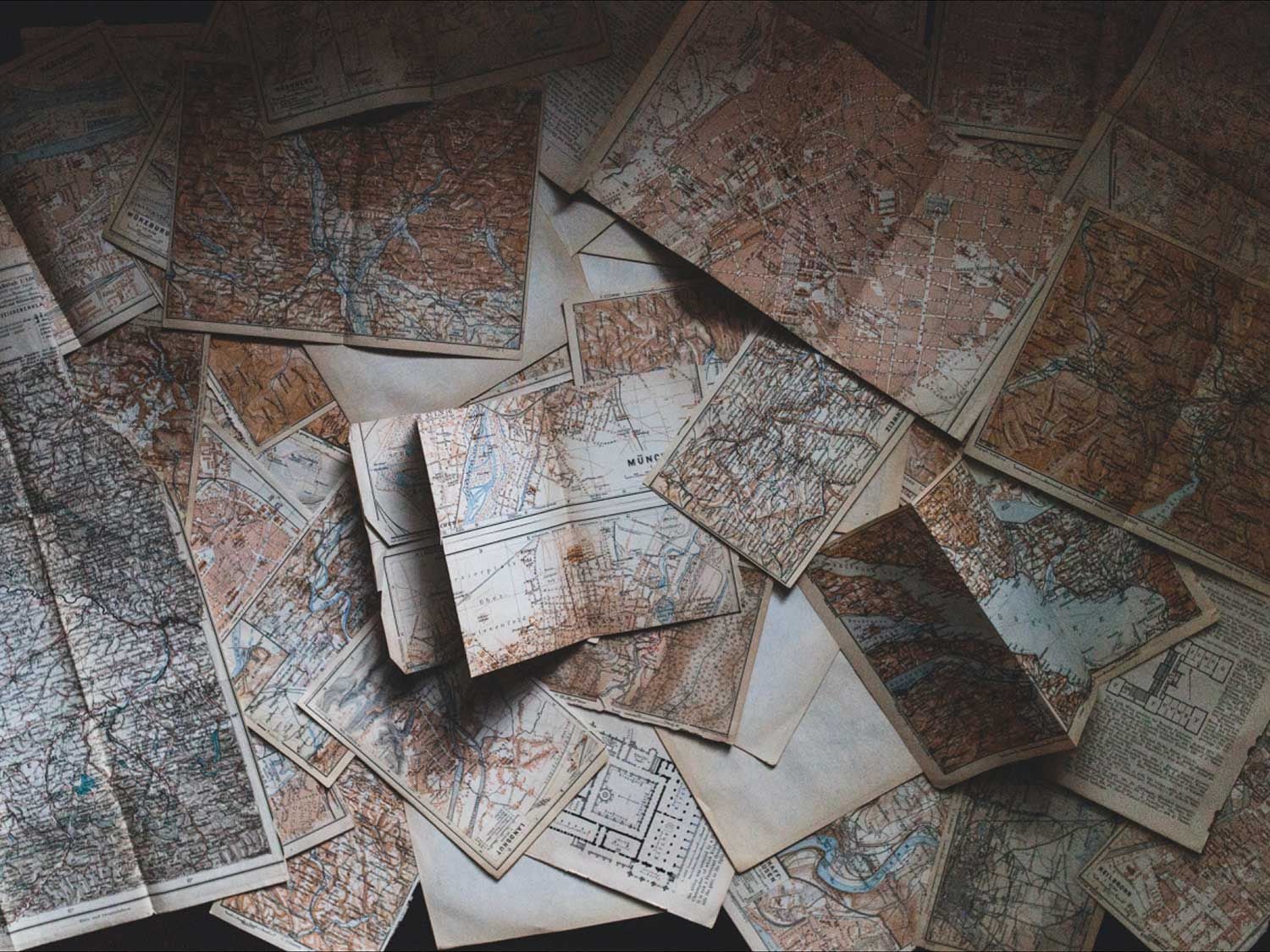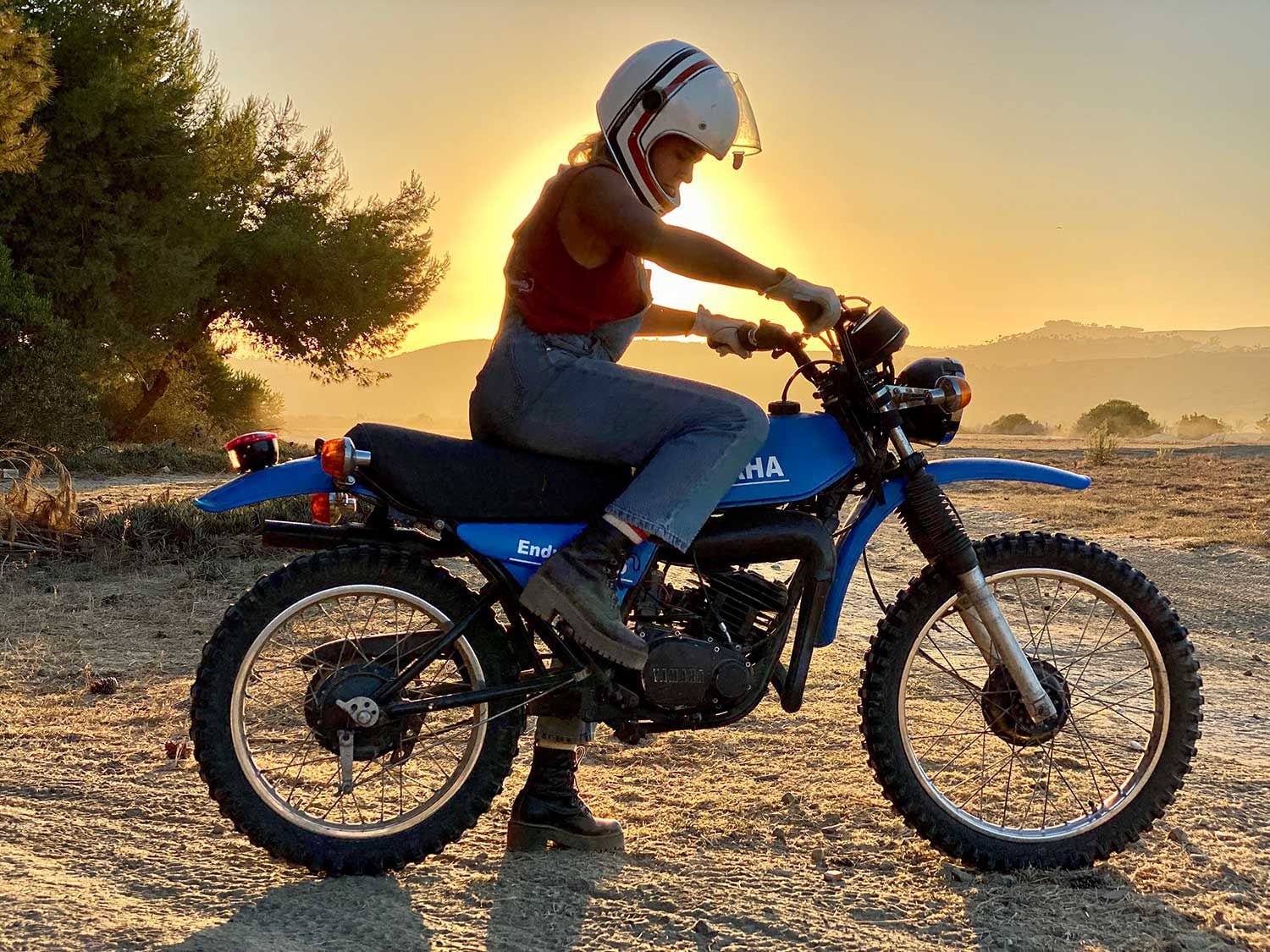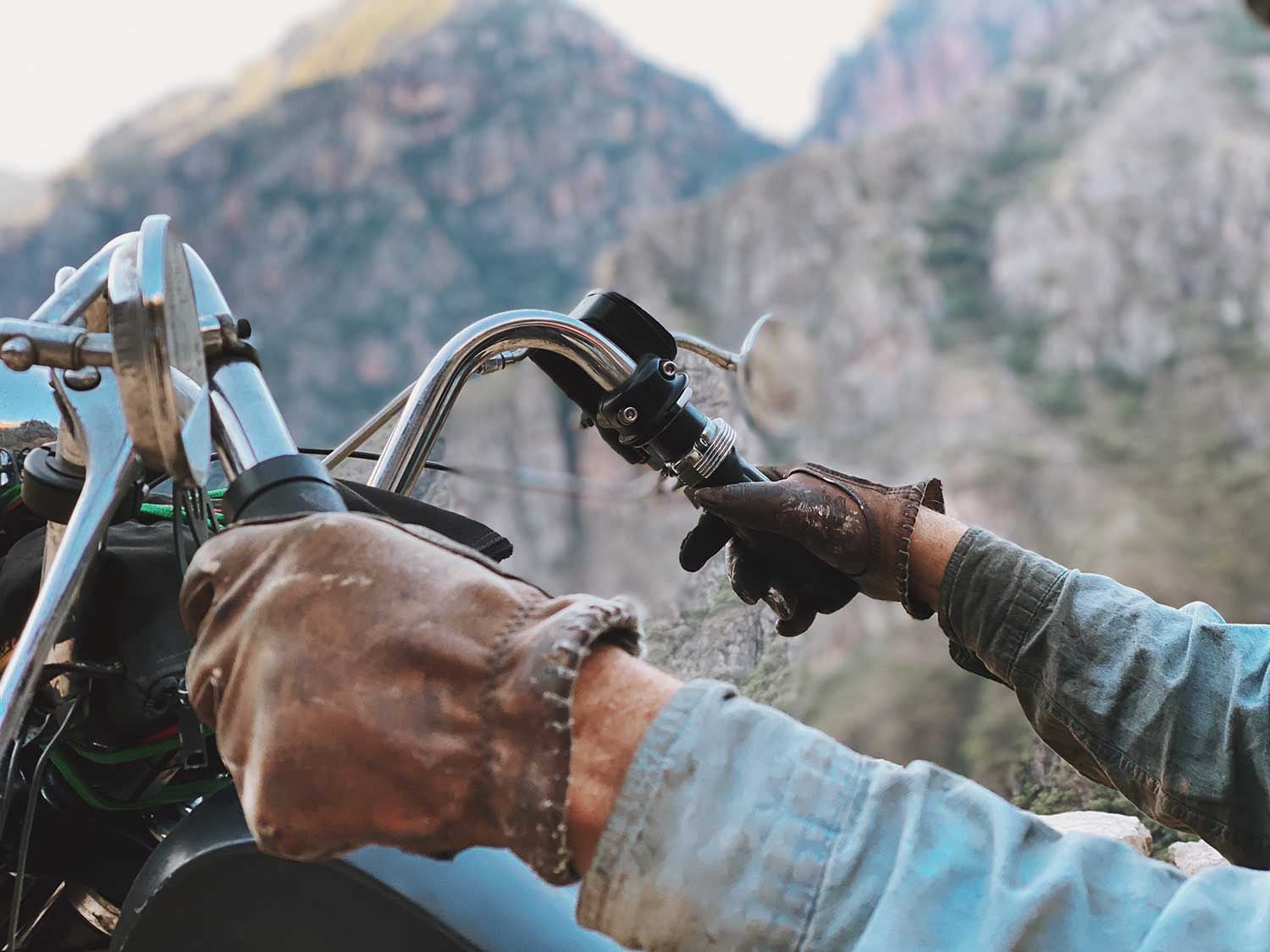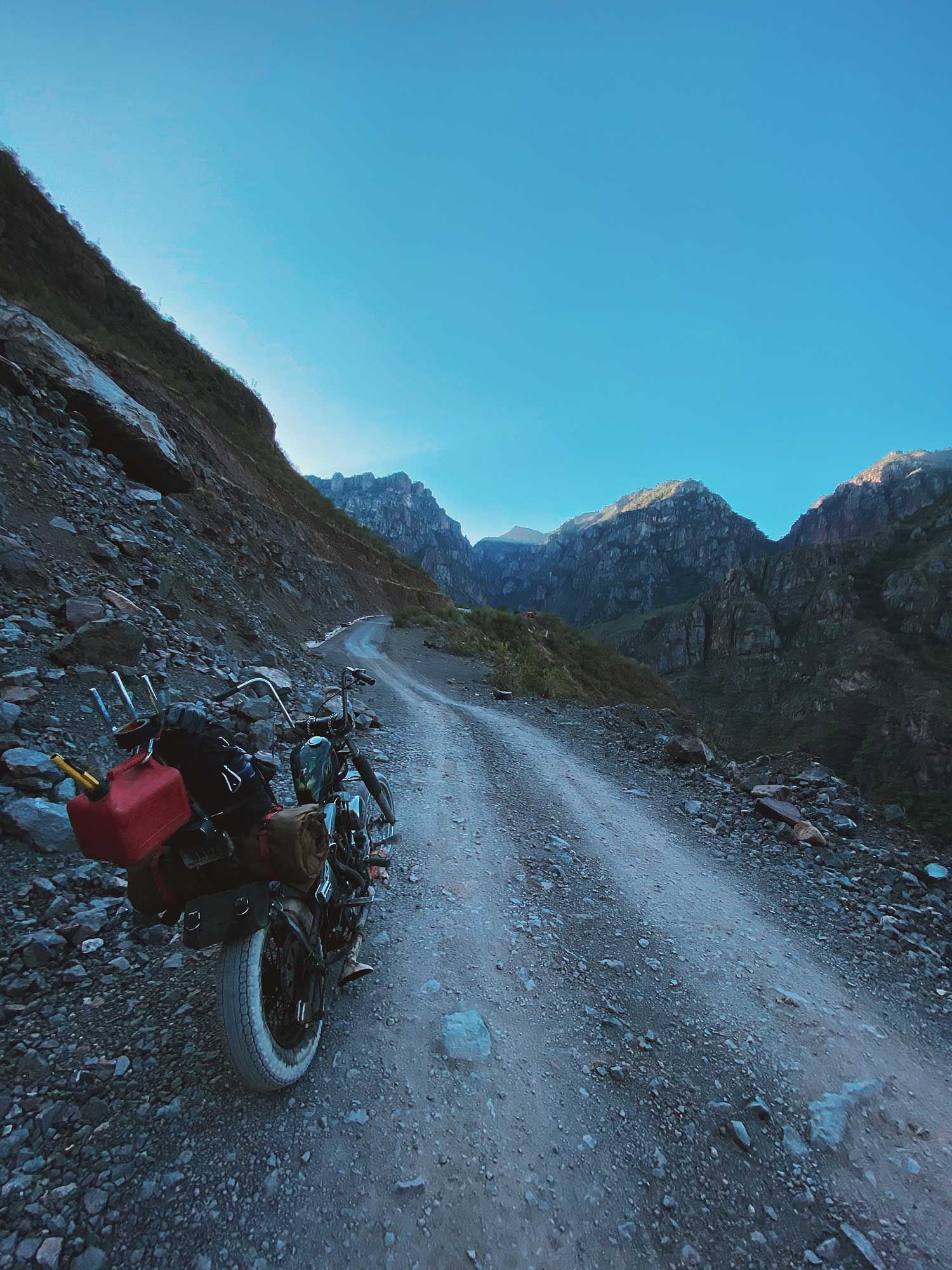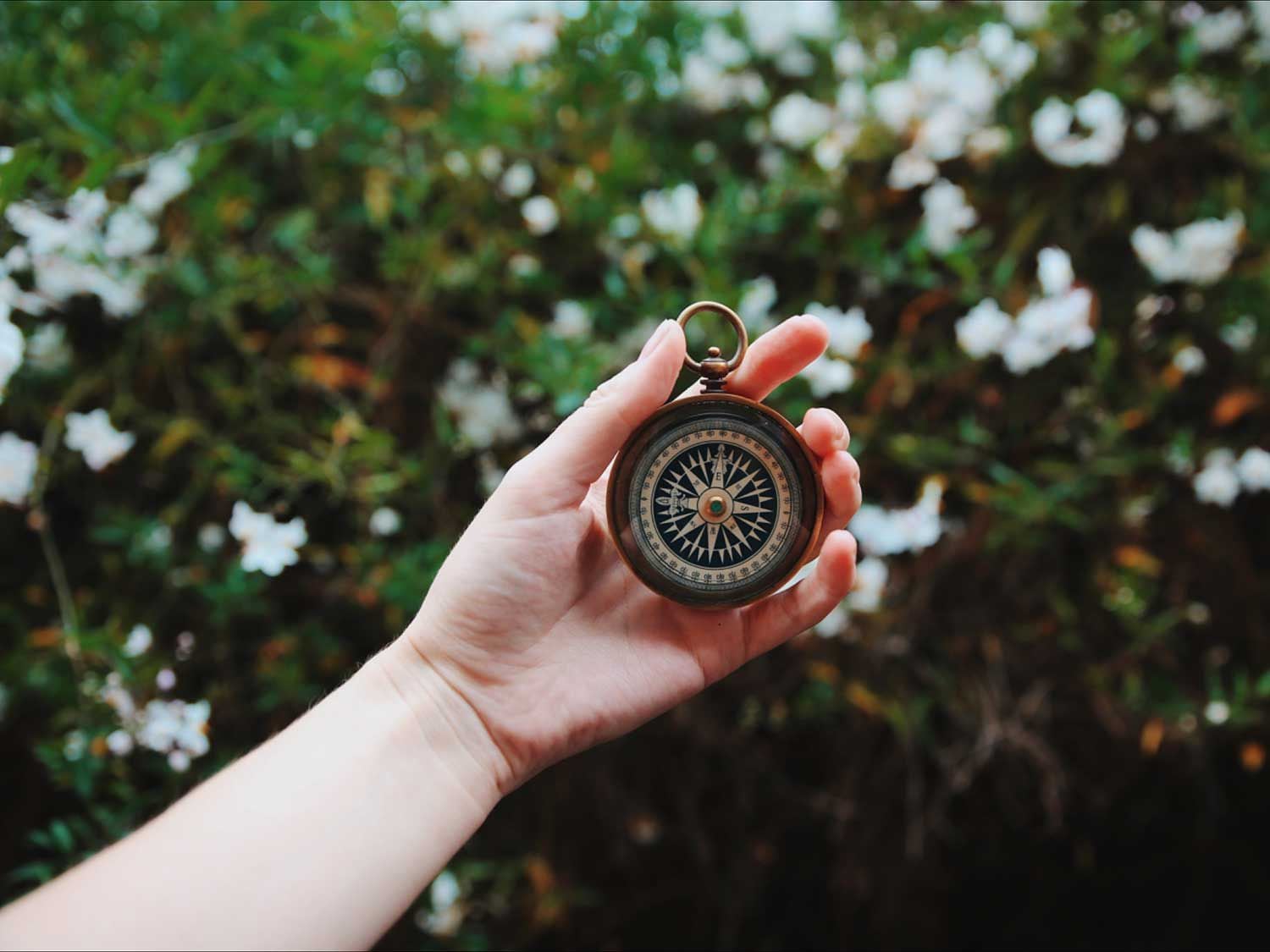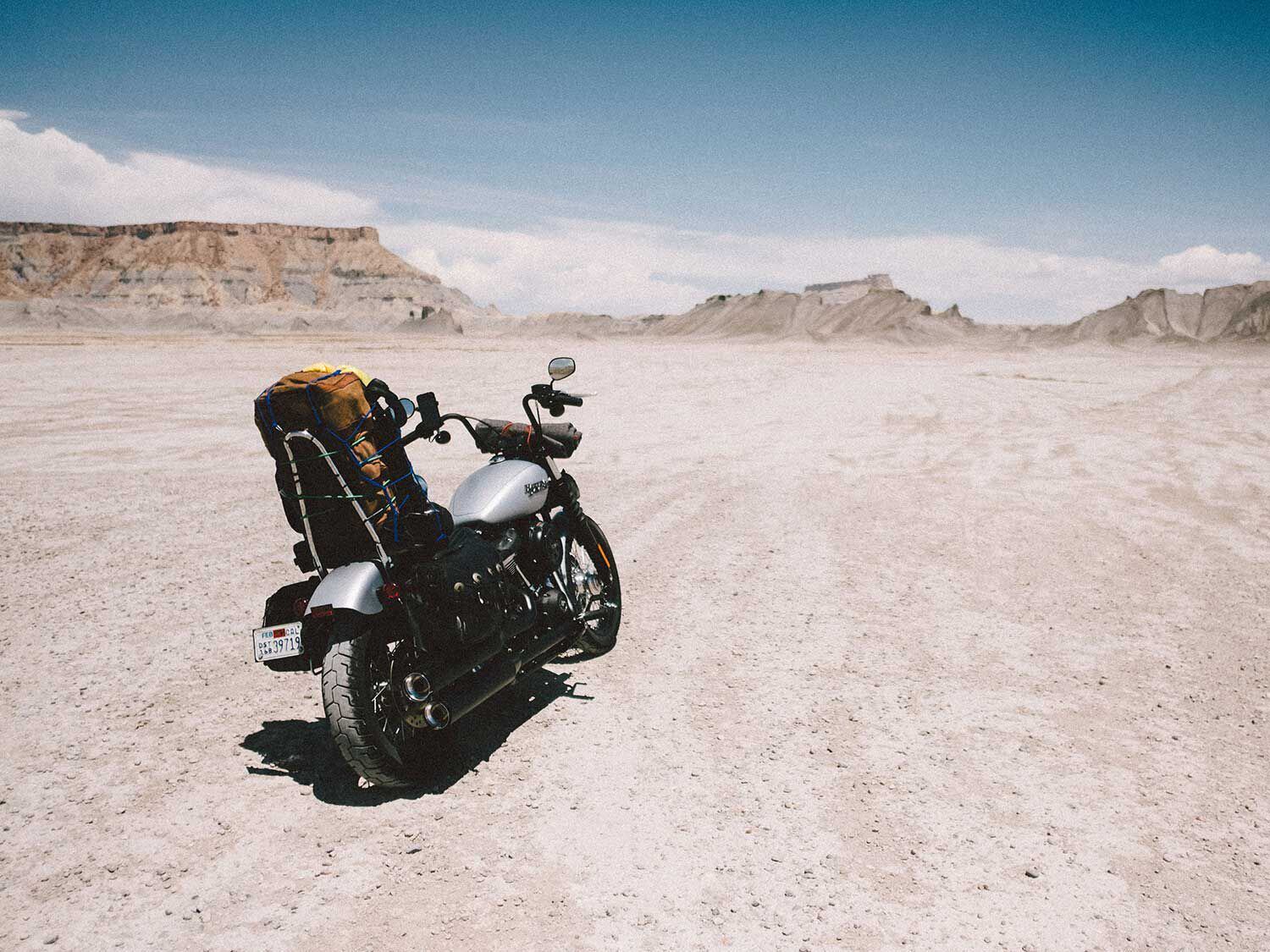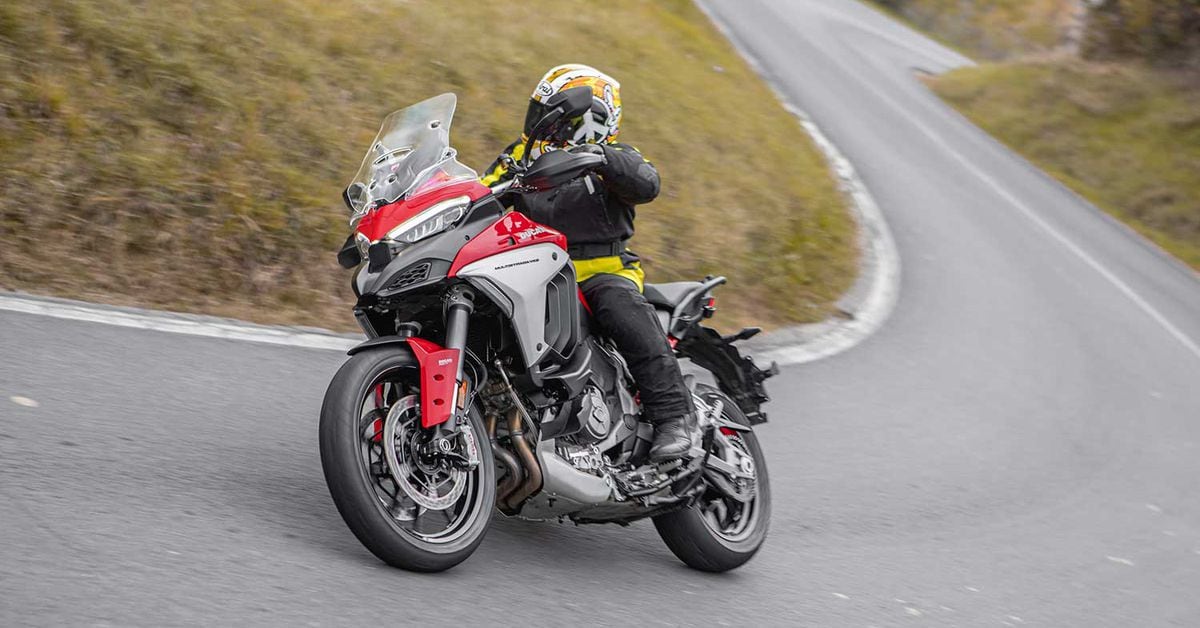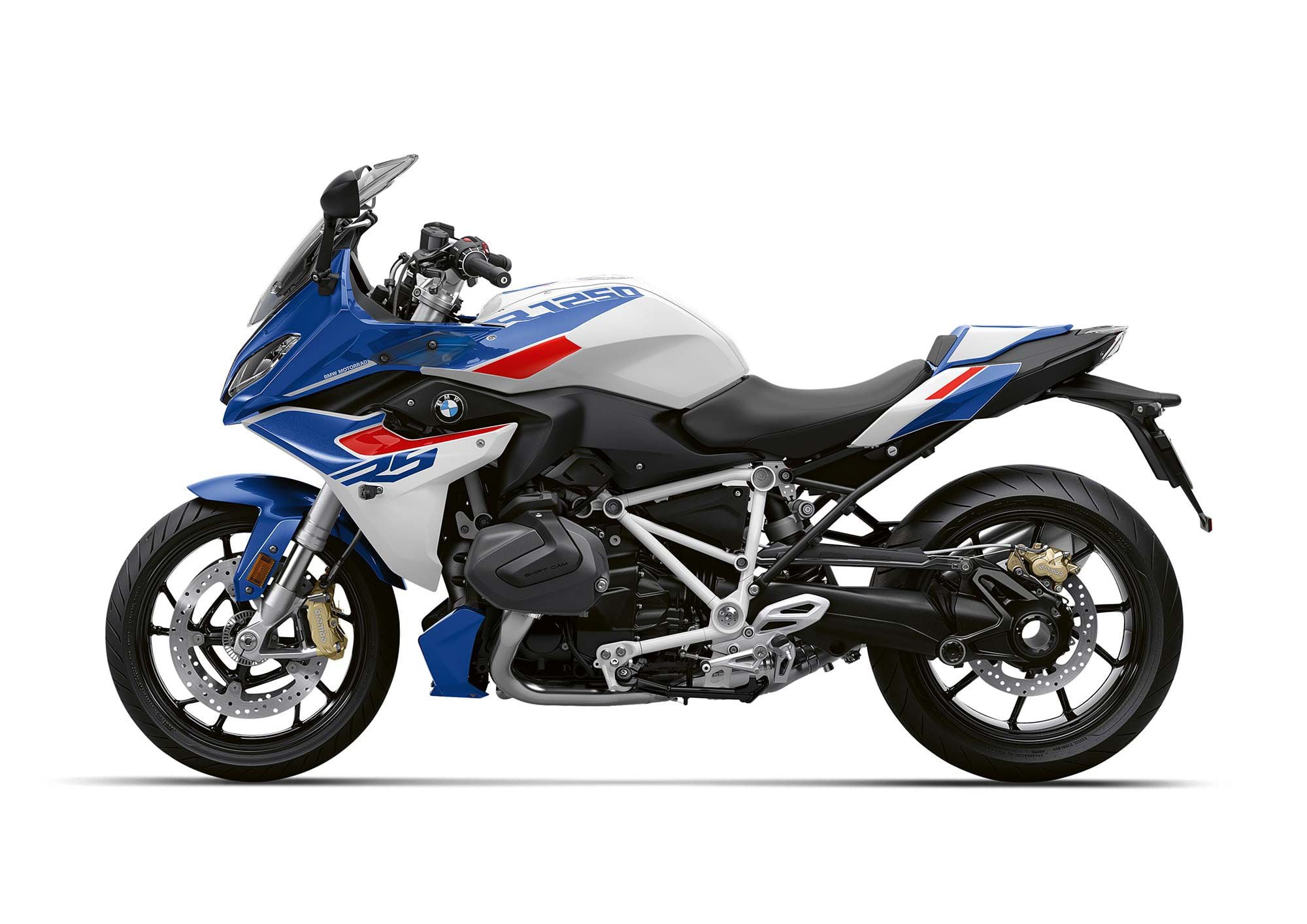.embed-container { position: relative; padding-bottom: 56.25%; height: 0; overflow: hidden; max-width: 100%; } .embed-container iframe, .embed-container object, .embed-container embed { position: absolute; top: 0; left: 0; width: 100%; height: 100%; }
I didn’t give up the use of my cellphone and navigation system by choice. Had I been given the option, I’m certain my days motorcycling through Colombia would have been different. Instead, there I was, on the side of the road with a large paper map spread across my handlebars, hoping my chintzy compass was still accurate. There were some moments of intense frustration and I felt more vulnerable pulled over to the side of the road with my map out (and an out-of-country license plate), but even then I knew I’d appreciate this low-tech opportunity later.
Related: Touring Motorcycles
It wasn’t like I could just stick to main roads either, because in order to arrive at my destination, a sloth rescue center, I had to diverge away from the arterial routes, descending into the network of spider veins that extend over and around the countless mountains in the coffee-growing region of western Colombia. What I discovered along that route, beyond the reality that I’m completely reliant on my handheld technology device, is that it is actually quite freeing to not know where you are at all times.
Related: Motorcycle Riding Tips – Touring During COVID Pandemic
There was something nourishing about looking around at landmarks, consciously following the river, and checking where the sun was overhead. There was even a level of entertainment in selecting which local I’d surprise by pulling over to ask them if I’m heading in the right direction. Seeing the look on the face of the farmer walking his bull down the road as I lifted my visor to ask for navigation guidance is truly a priceless memory I’ll forever cherish.
The brain itself is a spatial organ, which is perhaps why letting it and my gut instincts (the second brain) do the navigating felt good for a change. After all, spatial awareness, the complex cognitive skill that tells us our position relative to objects around us and to each other, begins to develop the day we are born. We owe the ability to read maps, put furniture together, and follow instructions like “the keys are inside the black bag under the helmet that’s next to the window” all to our spatial awareness.
Related: Motorcycle Riding Tips
We’re not the only animals that use our brain this way either, as internal mapping and navigation is linked to foraging and habitat use. Migrating birds, such as the peregrine falcon, a predator whose name means “wanderer” and is known for reaching faster speeds than any other animal on the planet during their stooped dives (more than 320 kph or 200 mph), also flies up to 15,500 miles each year when nesting in the Arctic tundra and overwintering in South America (smart).
Related: Long-Distance Motorcycle Riding Tips From Long-Haul Paul
Research has shown that exercising the spatial navigation function of our brain results in an increase in neuronal activity, particularly in the hippocampus, a part of the brain that is essential for navigation and memory, but also regulates our moods. In this active state, neurons create new connections and also preserve and organize existing ones. It seems likely that the satisfying feeling I got from using my brain to navigate rather than relying on technology could have come, at least in part, from the growth and housekeeping that was happening in my hippocampus.
Just the week before, I had no need for mobile technology. Locked down for months in an unfamiliar Colombian town, it wasn’t until after I left this solitude that I realized my phone—my navigation device—had completely failed. I don’t know at which point it failed because during lockdown I was only allowed to leave my rented casita (small house) once a week for groceries, with just the interior of the grocery store to explore and no need for GPS navigation.
Obviously it would have been more useful to learn that my model of iPhone had been recalled before I left my lockdown location, alas, when the phone wouldn’t even show me where I was located on the map, the problem quickly became apparent. It seemed there was some catastrophic failure in communicating with satellites, so even offline maps (like maps.me) wouldn’t work.
Related: Modern Motorcycle Technology
I was a long way from any city where I could get my phone replaced (turns out Apple only replaces the recalled phones within the countries where the defective model was sold anyway: the US and Hong Kong), so really my only option for navigation was the paper map I carry with me and my compass. I was forced into this situation, and since fixing the issue, I’ve been grateful to once again use GPS navigation. However, I now see how beneficial it can be to intentionally go without it every now and then. I have learned just how powerful relying on our brain for navigation, as we Homo sapiens have done for the majority of our existence, is.
Just imagine, if behaviorally modern humans have been around for about 50,000 years, that’s roughly 2,000 generations of us becoming what we are now. For all that time, we’ve been a part of the natural world, constantly using our senses to navigate as we moved about the earth. That intrinsic ability, shaped over time, still exists as a deep legacy within us, regardless of how buried under “civilization” it might be. Naturalist and author Michael McCarthy suggests that those developing human generations probably hold more importance for our psyches—even now—than the 450 or so generations that have passed since the advent of agriculture. McCarthy says that “we might have left the natural world, most of us, but the natural world has not left us.”
As Elon Musk pushes forward with his neural implant technology, the innovative brain-machine interface known as Neuralink, surgically fusing technology directly into our brains, he rationalizes this advance by saying that we’re already cyborgs anyway, that we already exist tethered to technology, just not quite so physically.
What will happen if we proceed down this path of outsourcing our cognitive capabilities?
Use It or Lose It
Playing a more active role in your navigation while motorcycling clearly has a number of benefits through hippocampal regeneration, including improved cognitive ability for learning and memory processing, emotion regulation, and perspective taking. How incredible that at our fingertips, with the (optional) use of a map and compass, and our senses (well, most of them, unless you want to know what the breeze down that alluring trail tastes like), we can improve far-reaching aspects of our cognitive and emotional well-being.
Grow Your Brain
There are always new places to explore, and navigation itself is a lifelong learning process. Silvia, the original liquid-filled compass company founded in 1933, says that “using a map and a compass is just as much about getting lost as it is about staying on course. With the right knowledge you can safely get off—and back on—your planned route, and go wherever you want to go.”
If you’re new to an area, take a good look at the map before you head out on your trip. That way you can select which routes may be best suited for your motorcycle journey and even consider which spots might be good for a rest or a pause to take in the views.
The USGS has created a useful fact sheet that explains the basics of topographic map concepts, map reading, and an overview on how to find your way with a compass.
A genetically engineered increase in neurogenesis in the hippocampus may be possible in the near future (it has already been successful in mice), but for now, in addition to heading out on your moto to navigate without gps every now and then, there are ways you can help promote neural regeneration naturally.
Mindfulness, Meditation, Present Awareness
I hope you’re not tired of hearing about the positive benefits of meditation, because this topic doesn’t seem to be going anywhere, as scientific studies continue to roll out positive results. Really any type of present moment experience awareness will suffice, which is often called “mindfulness.” I find this easiest to do when I focus on my breath, on what it actually feels like to be breathing. I try to notice the sensation of air leaving my lungs on the rim of my nostrils in order to really focus. I’ve even started doing this while riding my motorcycle, which actually leaves me feeling very alive and euphoric.
Studies have shown that practicing mindful awareness reduces a number of disorders, including anxiety, depression, substance abuse, eating disorders, chronic pain, and even improves overall well-being and quality of life. And if that weren’t enough, it activates the hippocampus and promotes neurogenesis.
Exercise
The health benefits of exercise are well established, but more recently revealed is the significant potential for healing the brain, combating depression, and lowering the risk for neurodegenerative diseases, such as Alzheimer’s, all of which are linked to the hippocampus. Exercise can increase levels of brain-derived neurotrophic factor (BDNF) and other growth factors, stimulate neurogenesis, increase protection and resistance to brain injury, and improve learning and mental performance. Going for a walk each day just got a lot more potent.
Memory Challenges, Games
Challenge yourself to remember the order of landmarks as you navigate, writing them down or repeating them out loud or in your head at your next stop. You could also memorize an inspirational or informative bit of knowledge each day that you can share with someone, or recall Latin names of flora and fauna (a personal favorite), or even phone numbers (who does that anymore!?). Essentially, get creative with the ways in which you challenge yourself. It’s likely that the more you enjoy what it is you’ve chosen to remember, the more likely you are to keep at it.
If you’re having trouble, try to remember the information in the form of a story, or as the Greeks did, as a physical place in your mind where you imagine yourself walking through, placing each bit of data in a spatial location.
Minimize or Eliminate Alcohol
In a long-term study that spanned 30 years, researchers at Oxford found that the amount of decreased size in the hippocampus was related to the amount people drank. Cognitive tests and MRI scans showed that heavy drinkers had the most hippocampus shrinkage, where moderate drinkers had moderate shrinkage, as compared to the least amount for nondrinkers.
Avoid Refined Sugars
Throw out the vegetable oils as well. Stick to natural sweeteners, like unrefined sugar and honey, and stable oils like coconut oil, avocado oil, and grass-fed butter.
A study showed that just two months of a diet high in refined sugars and unhealthy saturated fats were sufficient to reduce hippocampal neurogenesis and spatial learning performance.
CBD
This plant-derived cannabidiol reduces inflammation and protects neurons in the hippocampus.
Psychedelics
Ayahuasca and psilocybin mushrooms were shown to cause neurogenesis in the hippocampus, with an improvement in memory performance.
Other Supplements
Turmeric
Omega-3 fatty acids
Resveratrol
Since one of the most prolific sites in the brain for neurogenesis is within the hippocampus, generally anything that has shown to promote neurogenesis is going to target this area of the brain. Therefore, you can find a comprehensive list of 19 evidence based factors which may increase neurogenesis, along with corresponding scientific studies, here.
To be clear, I’m not advocating against the use of GPS or technology in general; like most smartphone-using cyborgs, my phone is on or near me every hour of the day. It is clear that this digital age has a suite of pros and cons for humanity. The glaring reality is that human evolution—the hardwiring of our brains—has not kept pace with the technological revolution. Our psychology is being used against us in the addictiveness of certain algorithms, as we have clearly moved away from using technology as a tool to more of a substance to abuse.
I think you might find, as I did, that heading out into the unknown without GPS, equipped with your senses and the optional map and compass, will bring a myriad of benefits your way. Plus, it just feels damn good to be fighting against the machine insurgency, one motorcycle journey at a time.



